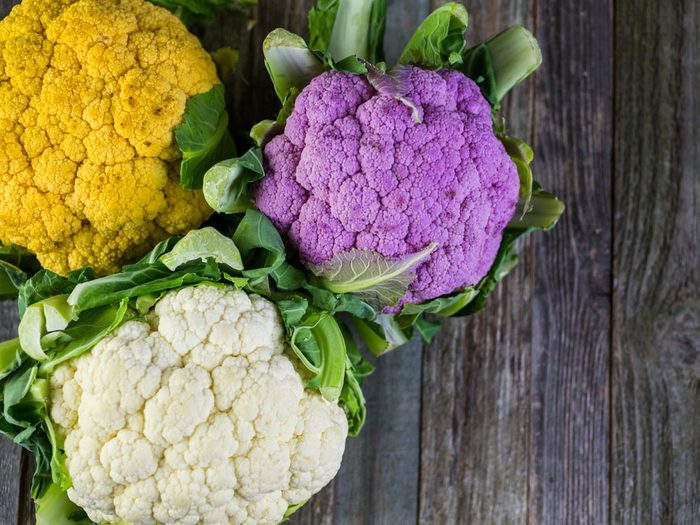
Say hello to immunity boosting antioxidants
Part of the cruciferous vegetable family, along with broccoli, kale and cabbage, cauliflower is a nutritional powerhouse with plenty of health benefits. Not only does it contain large amounts of vitamin A, thiamine, riboflavin, niacin, calcium, and iron, but it also boasts an enviable dose of antioxidants and phytonutrients such as vitamin C, beta-carotene, sulforaphane, and quercetin. Antioxidants and phytonutrients help battle daily exposure to pollution, stress and other body agers that can harm your organs and tissues.
To take advantage of the vegetable’s considerable antioxidant content, a 2013 study from Cairo University in Egypt suggests eating it raw, or choosing a cooking method that doesn’t damage the antioxidants. Steaming, stir frying or microwaving are recommended over water boiling, or blanching, which can destroy vitamin C and folic acid.
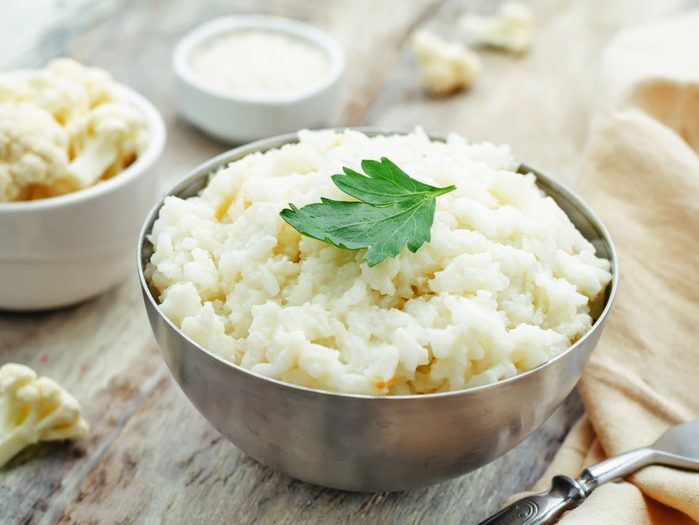
Eat cauliflower, lose weight
Trying to lose a few pounds? The benefits of cauliflower should put it at the top your grocery list. Low in carbs and fat, it’s an excellent substitute for mashed potatoes – a dinner companion that often tips the scales with extra calories thanks to added milk, sour cream, and cheese. (Try our Orange Cauliflower Mash recipe.)
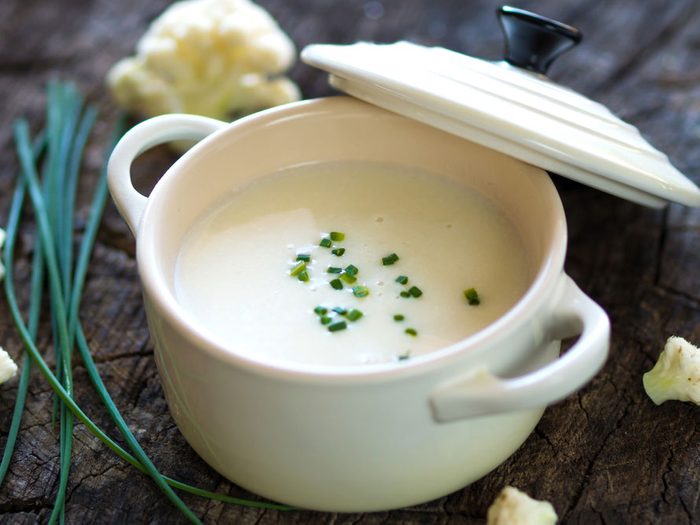
Reduce the risk of cancer
A 2014 study by South Dakota State University’s Department of Health and Nutritional Sciences discovered that a naturally occurring chemical called phenethyl isothiocyanate (PEITC), commonly found in cruciferous veggies like cauliflower, could prevent a relapse of certain cancers such as cervical cancer. PEITC attacks the cancer’s stem cells. If a cancer’s stem cells are destroyed, tumors can’t regenerate and spread the disease elsewhere in the body.
Earlier studies published in 2011 and 2012 in the Journal of the National Cancer Institute suggest that PEITC reduces the development of breast and prostate cancers in mice. Encouraged by these results, further research is ongoing to see if PEITC has the same effect on breast, and prostate cancers in humans. Scientists are also investigating PEITC’s affect on ovarian, and lung cancers.
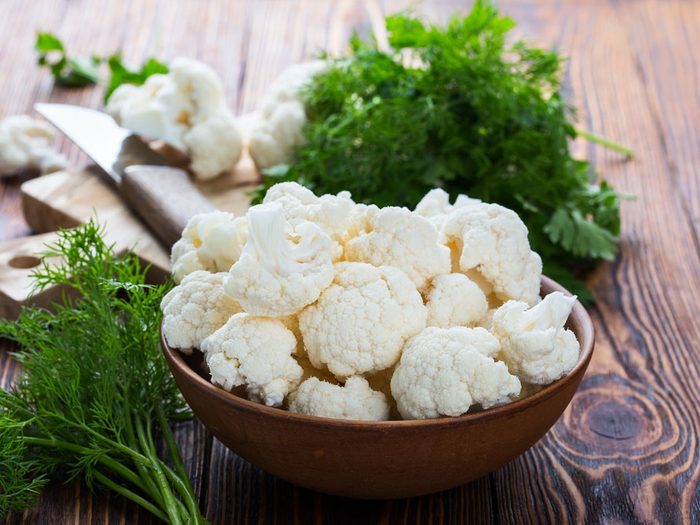
A friend to healthy skin
A 2007 study published by the National Academy of Sciences of the USA found that sulforaphane could protect the skin from ultraviolet radiation damage. Cauliflower’s high sulforaphane content fights against skin cancer, inflammation, and cell damage.

Stay heart happy
Another weapon in cauliflower’s toolbox is vitamin K. Its anti-inflammatory properties go hand in hand with heart health, improved blood pressure, lower cholesterol levels, good circulation, and optimum cardiovascular function.
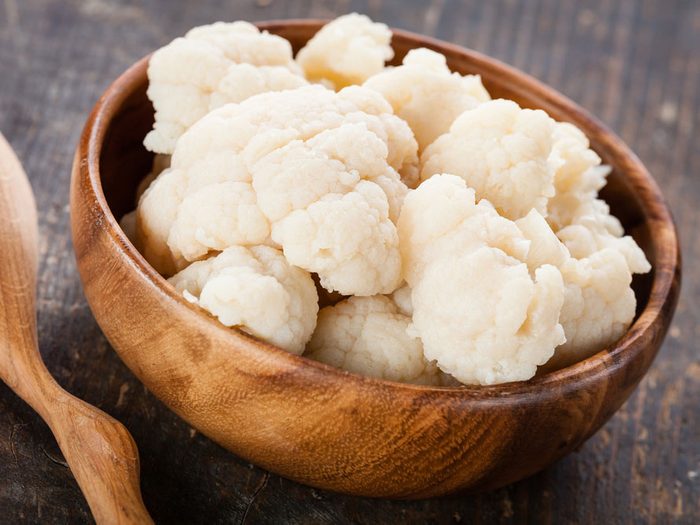
Digestive protection you can stomach
Cauliflower’s sulforaphane is at it again. Along with glucoraphanin, sulforaphane protects the stomach’s lining, and helps keep heliobacter pylori bacteria – a common cause of gastritis, and peptic ulcers – at bay.
Related:
• 20 Ways Cauliflower is Better than Kale
• Top 20 Winter Foods for Weight Loss
• The 5 Vegetables that are Highest in Fibre
